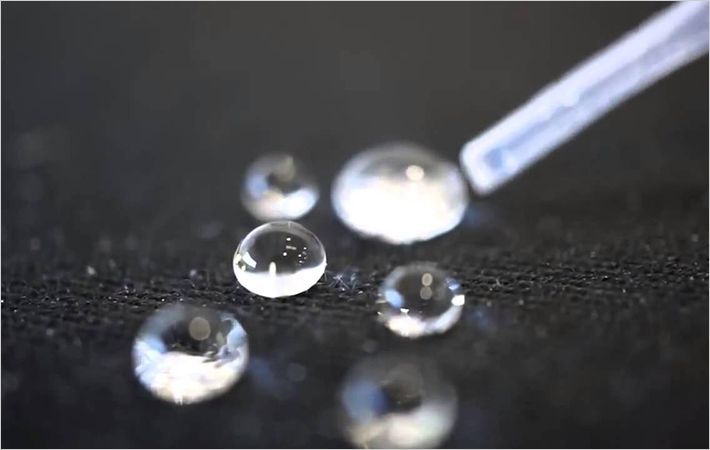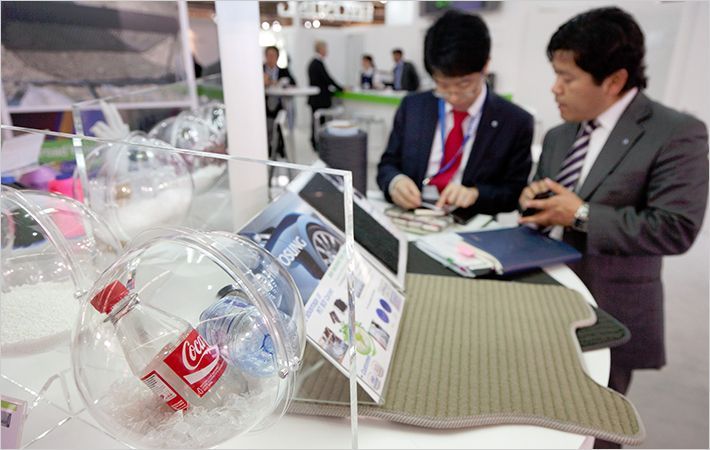Following the successful completion of the environmental impact assessment process for the new TENCEL® production plant in Lenzing/Upper Austria nine months after the formal filing of the project, Lenzing AG was formally granted a legally binding building permit by the Office of the Provincial Government of Upper Austria. Construction work has now commenced on the new production facility which will manufacture 67,000 tons p.a. of the specialty fiber TENCEL® in Upper Austria in the future. Construction time has been calculated at 24 months.
Lenzing AG will invest approximately EUR 130 mn in the new factory, making it one of the largest individual industrial investments in Austria at the present time. This project will be accompanied by considerable infrastructure investments. Moreover, once it is put into operation the TENCEL® production plant will generate 110 additional highly qualified jobs in Lenzing in the long term, as well as a large number of other jobs in the region. The planning and construction of the facility also leads to a corresponding value creation.Following the successful completion of the environmental impact assessment process for the new TENCEL® production plant in Lenzing/Upper Austria nine months after the formal filing of the project, #
Specialty fiber site in Lenzing
“With the TENCEL® plant the fiber technology of the future and the latest generation of man-made cellulose fibers is returning to our corporate headquarters in Lenzing. The Lenzing pilot plant was the place where 20 years ago the first marketable lyocell fibers in the history of the Lenzing Group were produced. They are now marketed around the world under the TENCEL® brand name”, says a pleased Friedrich Weninger, Member of the Management Board of the Lenzing Group and Chief Operating Officer responsible for the fiber business.
The new TENCEL® facility is of major strategic importance to the Lenzing site due to the fact that TENCEL® will also be produced on the premises in addition to the specialty fibers Lenzing Modal® and Lenzing FR®. Thus the facility in Lenzing will further expand its position as the main specialty fiber production site for the Lenzing Group. The geographical proximity to the European growth market for TENCEL®, the attractive energy costs as a consequence of the company's own on-site power generation capabilities as well as the availability of a sufficient pool of qualified personnel and the closeness to the TENCEL® pilot plant were the main reasons underlying the decision to locate the new plant in Upper Austria.
TENCEL®: The fiber of the future
TENCEL® fibers are used in the textile industry and for nonwovens. The production process is particularly environmentally compatible, and is characterized by the practically complete closed cycle of the solvent in use. Lenzing continues to be the only industrial-scale supplier of TENCEL®. The fibers are already being manufactured at the plants in Heiligenkreuz/Burgenland, Grimsby/U.K. and in Mobile/Alabama/USA. However, up to the present time production lines with an annual capacity of not more than 20,000 tons have been used. The current nominal production capacity of TENCEL® in the Lenzing Group totals approximately 140,000 tons p.a., which will be increased to 150,000 tons p.a. thanks to the expansion program now being implemented at the Mobile/Alabama site.
New applications are continually being developed. The optimal moisture management of the TENCEL® fibers makes it attractive for use in high quality home textiles such as quilts and bed linen, but also in ladies' outerwear and activewear. TENCEL® is also designed for sensitive segments such as cosmetics, hygiene and medicine, for example in wound dressings and baby wipes. TENCEL® is even used in the technical segment, for example to enhance the strength of plastics or to manufacture electro-technical components. The latest technical application is TENCEL® powder. It is deployed as a moisture regulator in foam mattresses and as additives to building materials, amongst other uses.
Lenzing Aktiengesellschaft

